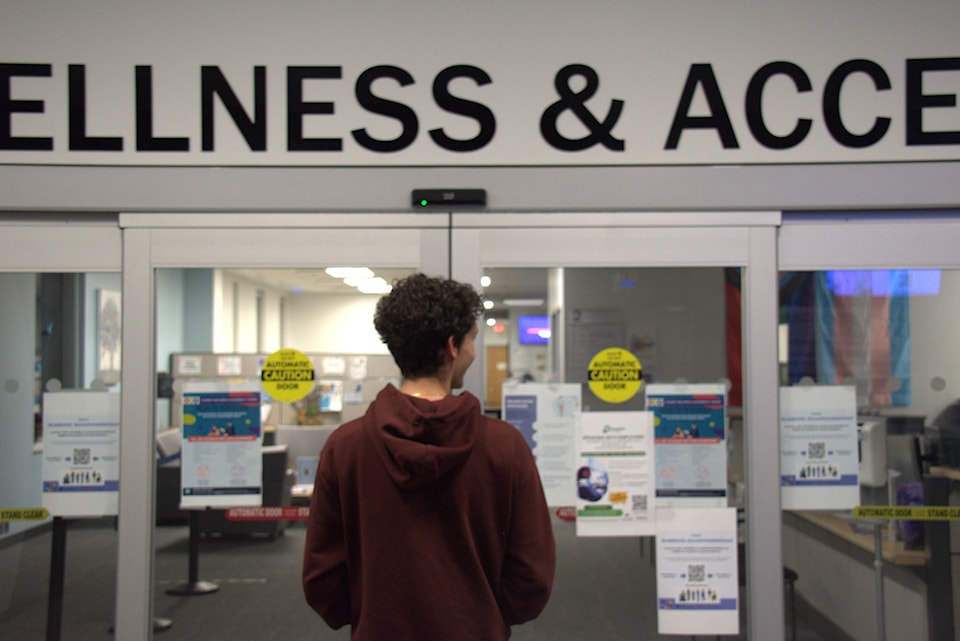It can be a stressful time as midterm exams and assignments near. There are ways for students to prioritize their mental health while keeping up with a busy schedule.
Michael Decaire, clinical psychologist and psychotherapist based in Richmond Hill, Ont., said mindfulness is a helpful tool in reducing negative thoughts and is best applied in awareness of daily habits.
“The standard definition of mindfulness is present moment awareness,” he said. “Basically, if you are attuned to what is going on inside you and around you, you are more likely to end up with a more positive result.”
Decaire has been using mindfulness as a tool for his clients for the past 12 years. He said he uses it as an extra boost of wellness on top of therapy and can be used every day.
“A lot of things that we say is a good idea, exercise is a good idea, yoga is a good idea, going and taking an art class, and the question is why are these things good ideas? They are all good ideas because they are all real-world applications of the concepts that are mindfulness," he said.

Decaire said he recommends starting with mindfulness of simple tasks such as standing or breathing.
“Pay attention to the feeling of the sensation on your feet as they sit there on the ground,” he said.
“People will tell you there are special powers in breathing, and there is some stuff that goes on in your nervous system, and you can breathe slow and things like that, but the reality is it's just using that as an opportunity, as a place to pay attention to, because you're always breathing,” he said.
Decaire said when teaching someone mindfulness for the first time he uses the concept of “Beginner’s Mind”.
“Which is this idea, ‘Can you approach something like you've never seen it before?’ And the example that they always give to people is to look at it like you're a child,” he said.
Decaire said many people think they are bad at mindfulness because their minds wander, but it’s part of the exercise.
“If you noticed your mind wandered, that’s not failing, that’s actually good,” he said. “If it's easy then you're not developing a skill.”
Simone Levey, clinical psychologist and co-founder of RENNI Clinic on Toronto’s College Street, said she recommends mindfulness apps such as Headspace and Calm for those looking to start doing mindfulness on a busy schedule.
She said daily meditation through activities such as yoga and exercise are forms of mindfulness.

“It really helps become aware and connect your mind-body relationship and help become aware of just ourselves,” she said. “We become more observant of what our bodies are doing and reacting and how our thoughts are impacting our bodies and vice versa.”
Levey said for people who can’t afford psychotherapy, practicing meditation and going on walks are helpful forms of self-care.
“It is so important to find moments of, you know, opportunities for self-care in our day, even if they're small. So even if waking up in the morning for a few minutes, let's say of mindfulness meditation can be really helpful,” she said.
Levey said it’s important for people to acknowledge when they are feeling mentally burnt out.
“When you're noticing that, then it's probably time to realize you're probably not being as productive right as you could be. Even if you just even took 10 minutes to go for a walk around the block,” she said.
Levey said she recommends taking breaks for mental health purposes but also to increase productivity.
“It brings up a whole other issue of you know why one might feel guilt. You know why one feels this pressure to keep achieving at the cost of their mental health,” she said. “The benefit, you take that time in a break, it allows you to ultimately be more productive.”
Humber’s Student Wellness and Accessibility Centre offers mental health resources and peer wellness services.
The Peer Active Listening Program is available in 45-minute sessions. Students are free to book an appointment for in-person or virtual sessions.
Counselling services are available for all Humber and University of Guelph-Humber students. Services are free, private and confidential.
Visit https://humber.ca/student-life/swac/home to make an appointment or learn more about Humber’s health and wellness resources.




